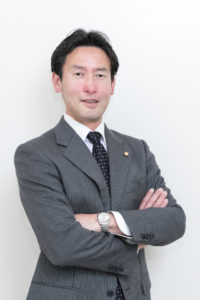The Japan Patent Office (JPO) dismissed an opposition filed by Tenro AG, a Swiss company established by Tennis King Roger Federer, against Japanese TM Reg no. 6691122 for mark “Roger King” in class 28 by finding dissimilarity to IR nos. 1529136 “THE ROGER” & 1529148 “ROGER” and unlikelihood of confusion.
[Opposition case no. 2023-900151, decided on April 23, 2024]
Roger King
Hirota Gold Inc. applied trademark application for stylized word mark “Roger King” (see below) in relation to golf clubs, golf club head covers, golf bags, golf gloves, golf equipment, and sports equipment of class 28 with the JPO on February 1, 2022 (TM App no. 2022-11297).

The applicant is engaged in the business of promoting golf clubs bearing the applied mark.
The JPO granted protection of the applied mark on April 14, 2023, and then published it for post-grant opposition on April 27, 2023.
Opposition by Tenro AG
Tenro AG, a Swiss company established by Tennis King Roger Federer, filed an opposition against the applied mark “Roger King” and claimed the mark shall be canceled in contravention of Article 4(1)(xi) and (xv) of the Japan Trademark Law by citing their owned earlier trademark registration nos. IR 1529136 for wordmark “THE ROGER” and IR 1529148 for wordmark “ROGER” in class 25.
Tenro AG argued that when “Roger King” is used in connection with the designated goods in question (athletic equipment), relevant consumers will associate the famous Roger Federer. Since Mr. Federer is called “King Roger”, they will undoubtedly consider the opposed mark as the name of Mr. Federer. Consequently, the opposed mark and the cited marks are deemed similar because they share the same sound and appearance, and both give rise to the same meaning as the famous Roger Federer.
JPO decision
Initially, the JPO Opposition Board found that although Roger Federer is widely recognized as a prominent tennis player, he is not typically abbreviated as “Roger.” Furthermore, there is no concrete evidence indicating the scope and method of advertising and market share in Japan for goods using the cited marks. Therefore, the Board has no reason to believe that the cited marks are widely recognized as a source indicator of the claimant’s business among Japanese consumers.
Secondly, in evaluating the similarity of the marks, the Board held that, from appearance and sound, both marks are clearly distinguishable as a whole due to the presence and absence of “THE” and/or “KING”. Besides, the opposed mark does not have a specific concept. Meanwhile, the cited marks give rise to a meaning of a man’s name. If so, there is no similarity and confusion in concept.
In the absence of a convincing demonstration of the fame of the cited mark and a low degree of similarity between the opposed mark and the cited marks, it is unlikely that relevant consumers will confuse a source of goods in question bearing the opposed mark with Mr. Roger Federer or the claimant’s business.
Based on the foregoing, the Board decided that the opposed mark shall not be canceled in contravention of Article 4(1)(xi) and (xv) and dismissed the opposition entirely.

Masaki MIKAMI, Attorney at IP LAW – Founder of MARKS IP LAW FIRM


